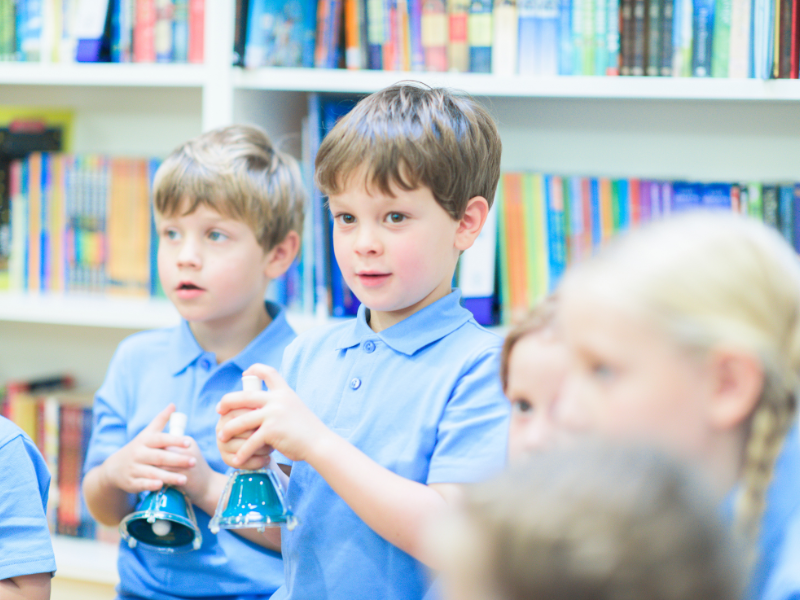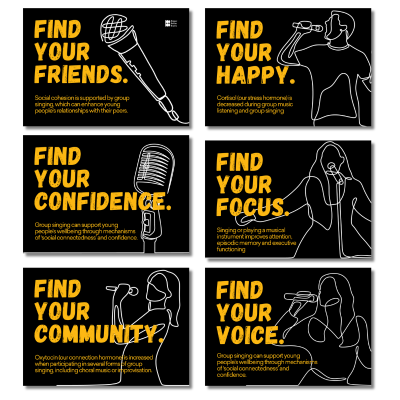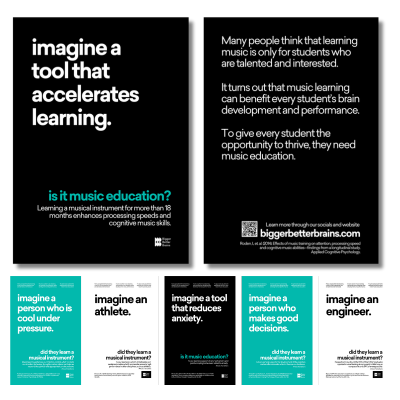
Research Updates

Here at Bigger Better Brains we believe that through educating yourself, you can then educate and affect positive change in your community.
With all of the research in the field of neuromusical science, our BBB Research section serves as a content hub for you. We regularly share findings and break down the latest research to educate and inspire discussion. We hope you enjoy this page on our website and share BBB news with your colleagues, parents and students.
- Advocacy
- Ageing
- Aging
- Attention
- Auditory Processing
- Cognitive Health
- Communication
- Community
- Dyslexia, Autism & ADHD
- Early Childhood
- Executive Function
- Fireworks
- Impulse Control
- Language & Literacy
- Memory
- Music Learning
- Music Listening
- Neural Development
- Parents
- Personality
- Productivity
- Prosocial Behaviour
- Prosody
- Reading
- Rehabilitation
- Research Bites
- Research Methods
- Research Quick Reads
- Reward
- Singing
- Social Skills
- Video
- Wellbeing & Therapy
- Working Memory
Hitting a drum helps preschoolers gain control
To get control of our inhibitory control, preschoolers might first need to get a hold of the beat!
Auditory roots of literacy skills
Here is a great article to take along to your next staff meeting or use as a discussion point with other teachers in your school, particularly if it is a primary or elementary school.
Joint music-making leads to more helping behaviour in 18-month olds
It may seem strange to think of a childcare centre that does not use music in some way. We know about the many cognitive skills that interaction with music can create for your children, but why do we have music in the first place?
Does music participation teach sharing?
Did you know there are many types of sharing? When you stop and think about it, there are many ways we can share a toy or food, but most of the time, as parents or educators, we would say something like “Let’s just be nice and share.”
Musical activities improve social communication skills for autistic children
In this study at the University of Montreal, 51 children with ASD ages 6 to 12 were randomly assigned to participate in a clinical trial involving three months of either a music-based, or a play therapy intervention.
What do 5 years olds learn in their weekly music lessons?
If you were to look at a standard weekly timetable for a kindergarten class, you would hopefully see at least one music learning class. This study looked at the regular 40-minute weekly sessions of music learning for kindergarten.
Can musicians hear more emotions in your voice?
Do you know someone who struggles to hear the emotions in speech? The skills of “hearing” prosody in speech are fundamentally musical. It is the melody and rhythm of speech, mixed in with the facial and physical expressions that went along with the speech, that our brains use to interpret emotions in speech.
Music sets preschoolers up for success
In a new study, it has been found that preschoolers who have better vocabulary and attention skills are more likely to do better at school. This is not a shocking finding. Early childhood educators have been aware of this connection and indeed school readiness programs focus on building both of these skills.
7 Amazing Reasons to Introduce Music in Early Childhood Education
If you are looking to develop your child’s emotional, social, motor and cognitive skills from early childhood, then try introducing music in early educational programs. Watch this video to learn more!
New neuroscience research upends traditional theories of early language learning in babies
New research challenges traditional theories of infant language acquisition, suggesting that babies primarily learn language through rhythmic rather than phonetic information in their initial months.
Music is the Jackpot!
This video contains excerpts from an ARTSpeaks event held on November 8, 2021. In this video, neurobiologist Nina Kraus explores the impact that music learning has on young students in the areas of reading skills, sound processing, language abilities, and more.
Little ears are listening: How babies learn to talk before they’re even born
This article is packed with fantastic research from the MARCS Institute in Sydney, Australia. It is vital to study the first developmental steps in all areas of life.
Hospitals are prescribing music therapy for babies
“Research suggests music helps parents bond with babies who have had a harrowing start to life and may benefit the babies’ health and brain development.”
Music learning increases pre-reading skills and vocabulary
The results of this study found that early childhood music training can lead to associated improvements in both musical skills and language skills!
Language is music to a baby’s brain
In this study, they found that 9-month-old babies who had one month of exposure to directed music listening improved not only their auditory processing of music but also their language!
Singing – the [new] pain management for premature babies
“The primary musical features of infant-directed singing are ideal for emotional coordination and sharing between parent and infant without the risk of over-stimulation.”
Musical play is a must for preschoolers
What is musical play? Is it bashing on an upturned drum in the playground or banging pots and pans on the kitchen floor? Well, it can be both.
Music learning enhances executive function in preschoolers
After 12 weeks of 35 minutes of active music learning every day, randomly chosen preschoolers in the experiment group had higher scores on all of these executive function measures.


















![Singing – the [new] pain management for premature babies](https://images.squarespace-cdn.com/content/v1/64c31ad8c54df33979a8ebe4/c3eca797-6d6a-4d52-a6a8-3087eab8c824/Mum+and+baby.png)








